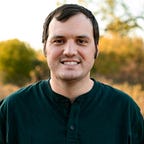Academic Identity Crisis: The Book That Changed My Life
My thoughts on Leaving Academia: A Practical Guide
Introduction: My Academic Identity Crisis
I always loved school. I loved it so much that I enrolled in graduate school and pursued a PhD in Media Arts and Sciences. It unfortunately left me in a state of anxiety and a loss of direction. I wanted to be a film studies professor, but I lost the love for the vocation after encountering the reality of the crushing academic job market, the exploitation of grad students and adjuncts, and my growing lack of self-esteem in a non-supportive institutional environment.
When I finished my PhD qualifying exams, I felt like I lost my identity. I always framed who I was by my academic achievements and what I studied. It was hard to disentangle my academic life with my personal life.
The structure of school (taking classes, grades, etc.) was done and all what was left (and is left) is the dissertation.
People think of a PhD degree as the end goal, but once you complete that goal, what happens next?
Leaving Academia: How it Changed My Outlook on Life
I happened to come across a book in 2020 by an author named Christopher L. Caterine. In many ways, Leaving Academia: A Practical Guide literally changed my life. I’m not a fan of the self-help book genre, but something about Leaving Academia did help me find my way. For someone that struggles with anxiety because of self doubt, this book couldn’t have come at a better time in my life.
Leaving Academia resonated with me deeply because of my own loss of identity as a student/academic researcher, however, reading it gave me hope for the future. I had a plan in place of how I could leave academia and work somewhere that was more fulfilling to me personally and financially.
Key Excerpts from Leaving Academia (citations from Google Books)
Doubt and Identity Crisis:
The doubts we’re prone to feel as we think about working in a different sector thus go beyond the practicalities of not knowing what it’s like to do a new job. In a very real way, we worry that we don’t know who we’ll be if we cease to be academics (p.27).
The Fear of the Unknown:
The world beyond higher education, the situation is akin to looking at a black hole. You know the object is there, but it’s impossible to see past the event horizon that shrouds its true workings in mystery. Its gravitational pull actually makes that limit a point of no return: anything that moves beyond the event horizon is unable to cross back over again, at least not without being irrevocably and utterly transformed. These attributes make leaving academia awesome in the word’s original sense: enormous and terrifying (p. 19).
Essence of Networking and Informational Interviews:
My change of heart was sparked by the realization that very few people are in a position to hire you at the precise moment you meet them. Consequently, networking isn’t about getting a job — at least not directly. It’s instead about increasing how many people you know within a company, field, or geographic area. The more people you know, and the more actively you maintain your relationships with them, the more attuned you’ll be to the dynamics and concerns that impact them. Likewise, the better they’ll know what kind of position you’re suited to (p. 88).
What I’ve Done Since Reading Leaving Academia in 2020
It’s been almost a year since I finished Leaving Academia.
Since then, I’ve reached out to numerous people and PhDs regarding career advice. Set up informational interviews with complete strangers on LinkedIn. Volunteered in a coding competition (never thought I would do that in my life). Volunteered as a career coach for a local shelter in Bloomington.
I’m doing things in my career that my former self in 2011 or 2019 would be impressed by. Most importantly, I’m building confidence in myself and in my career path.
Note: This was not a paid endorsement. Christopher didn’t ask me to write this. I strongly suggest other PhDs read this book and consider options outside of academia.
______________________________________________________________________________________________________________________________________
Follow me on Twitter
Connect with me on LinkedIn
Lastly, check out my website: www.collinsryan.com
